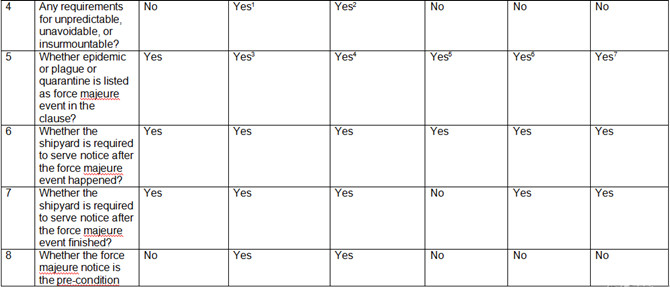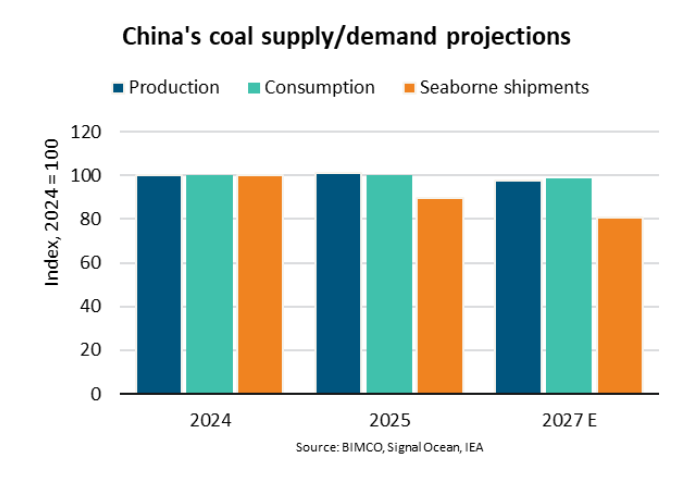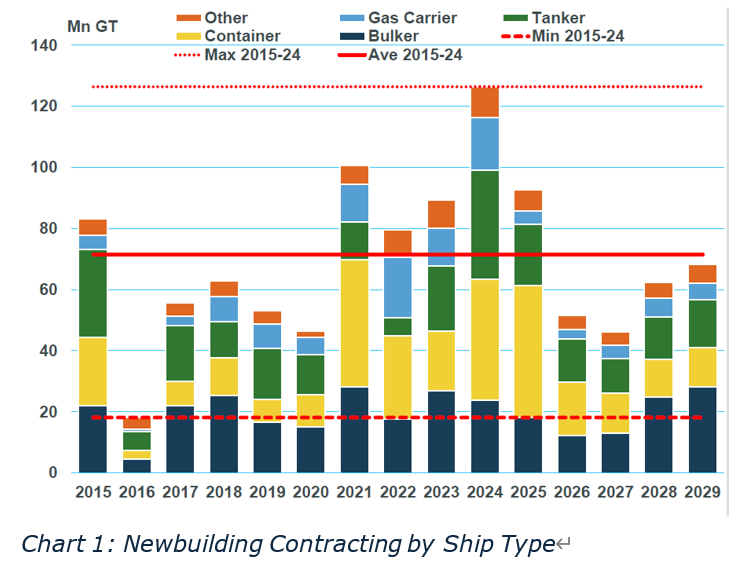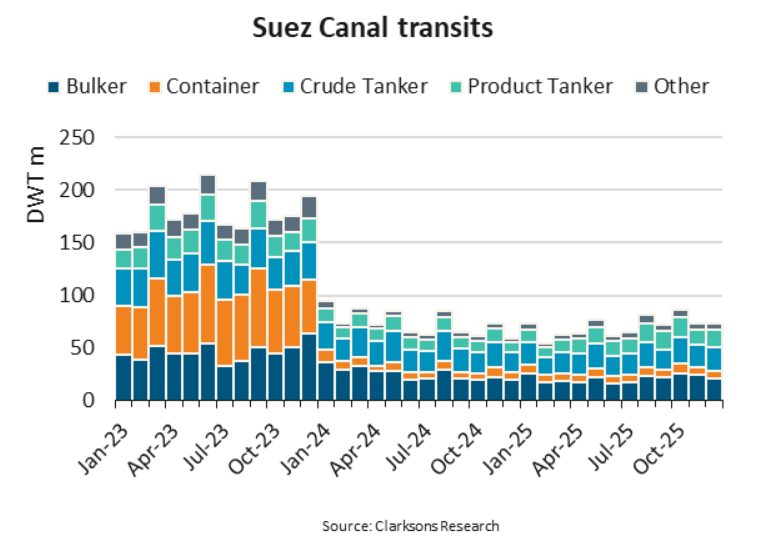
COVID-19 and Force Majeure under Shipbuilding Contracts
As the effects of global restrictions to prevent further spread of the Covid-19 coronavirus outbreak begin to impact the shipping industry, maritime law specialist Hill Dickinson has advised ship owners and ship builders to check the details of their contracts to clarify whether any delays are covered under force majeure rules.
Hong Kong-based Hill Dickinson Legal Director, Edward Liu, advises ship buyers whose vessels may be delayed to review their contract terms and in particular the force majeure clause, to collect evidence of force majeure events in relation to any delay, and to adopt appropriate mitigating measures to reduce any impact on contractual performance.
In addition he advises ship builders to consider how the epidemic situation will affect their supply chain and to formulate emergency plans in case of problems.
Mr Liu said: “These are difficult times for many industries and the shipping sector is not exempt. While it is essential to support measures which reduce the spread of this potentially deadly virus, it is also important to ensure that the businesses which support many people’s livelihoods are as resilient as possible.”
Hill Dickinson has issued the following advice to its clients:
Background
Since the outbreak of the COVID-19 novel coronavirus (“Covid-19”) in China, some Chinese shipbuilding companies have postponed the shipbuilding construction, which has inevitably affected the production process under the relevant shipbuilding contracts. Given the duration of the Covid-19 epidemic is still unclear, the operation efficiency of the shipyards in China will likely be hindered by the slow resumption of work. Recently, there were reports that some Chinese shipbuilding companies have also issued "force majeure" notices to the buyers in favour of the potentially postponed delivery of the newbuilding vessels.
It is worth noting that the China Council for the Promotion of International Trade (CCPIT), which is officially accredited by the Ministry of Commerce of People’s Republic of China, has announced on 30 January 2020 that it would issue “force majeure” certificates to qualifying applicants, for the purpose of “shielding” the companies from legal damages resulting from the Covid-19. Since the first certificate issued on 2 February 2020, more than 1,600 force majeure certificates have been issued by the CCPIT.
Covid-19: Force Majeure
On 10 February 2020, Mr. Zang Tiewei, Spokesperson of Commission of Legislative Affairs of the National People’s Congress Standing Committee, expressed that “for the parties who are unable to perform the contract, the epidemic is an unforeseeable, unavoidable and insurmountable force majeure. According to the Contract Law of the People’s Republic of China, except otherwise provided by law, parties could be exempted from performing contracts in part or in whole due to the event of force majeure.” Thus, whether the Covid-19 constitutes a force majeure event in the contract, and whether the affected companies can be exempted from contractual liability have become one of the very topical issues.
Due to the Chinese Government’s epidemic prevention measures, it is an objective fact that there have been delayed resumption of work, traffic control, and restricted dispatch of labour personnel etc. Hence, the force majeure certificates issued by the CCPIT may arguably constitute a prima facie evidence, or at least persuasive proof of the force majeure event resulting from the Covid-19.
However, for a party to invoke force majeure and get an exemption from its contractual liabilities under the Chinese law, proving the force majeure event is the only first step. The next step is that the invoking party has to show that the delay, disruption or breach of the contract is caused by the force majeure event (an objective circumstance that was unforeseeable, unavoidable and insurmountable such that it rendered performance impossible), despite that it is not necessarily to be the only reason (as opposed to the English law position). In addition, subject to the terms of the force majeure clause, under the Chinese law the invoking party also has a duty to mitigate the loss, and it shall give a notice to the other party about occurrence of the force majeure within a reasonable time.
More importantly, in most of the international shipbuilding contracts, the applicable law is English law rather than Chinese law. As a matter of English law, there is no defined concept of force majeure. In the absence of a force majeure clause or if the clause is too badly drafted to be relied upon, then the doctrine of frustration will operate. In such circumstance, most of the standard shipbuilding contracts which are commonly used would contain a force majeure clause which allows the shipyard to extend the delivery date, which is known as “permissible delay” under the shipbuilding contract.
Force Majeure Clauses in Standard Shipbuilding Contracts
This article thus attempts to compare and contrast the key elements of the force majeure clauses in different standard shipbuilding contracts. The standard contracts include:-
1. The Shipbuilders’ Association of Japan (SAJ) 1974 form – SJA 1974
2. The NEWBUILDCON form published by BIMCO in 2007 – Newbuildcon 2007
3. Norwegian Shipbuilding Contract 2000 – Norwegian 2000
4. Standard Shipbuilding Contract of the Association of European Shipbuilders and Shiprepairers in 1999 – AWES 1999
5. Standard Shipbuilding Contract of China Shipbuilding Trading Co. Ltd – CSTC Form
6. The China Maritime Arbitration Commission (CMAC) 2012 form – CMAC Form



As the effects of global restrictions to prevent further spread of the Covid-19 coronavirus outbreak begin to impact the shipping industry, maritime law specialist Hill Dickinson has advised ship owners and ship builders to check the details of their contracts to clarify whether any delays are covered under force majeure rules.
Hong Kong-based Hill Dickinson Legal Director, Edward Liu, advises ship buyers whose vessels may be delayed to review their contract terms and in particular the force majeure clause, to collect evidence of force majeure events in relation to any delay, and to adopt appropriate mitigating measures to reduce any impact on contractual performance.
In addition he advises ship builders to consider how the epidemic situation will affect their supply chain and to formulate emergency plans in case of problems.
Mr Liu said: “These are difficult times for many industries and the shipping sector is not exempt. While it is essential to support measures which reduce the spread of this potentially deadly virus, it is also important to ensure that the businesses which support many people’s livelihoods are as resilient as possible.”
Hill Dickinson has issued the following advice to its clients:
Background
Since the outbreak of the COVID-19 novel coronavirus (“Covid-19”) in China, some Chinese shipbuilding companies have postponed the shipbuilding construction, which has inevitably affected the production process under the relevant shipbuilding contracts. Given the duration of the Covid-19 epidemic is still unclear, the operation efficiency of the shipyards in China will likely be hindered by the slow resumption of work. Recently, there were reports that some Chinese shipbuilding companies have also issued "force majeure" notices to the buyers in favour of the potentially postponed delivery of the newbuilding vessels.
It is worth noting that the China Council for the Promotion of International Trade (CCPIT), which is officially accredited by the Ministry of Commerce of People’s Republic of China, has announced on 30 January 2020 that it would issue “force majeure” certificates to qualifying applicants, for the purpose of “shielding” the companies from legal damages resulting from the Covid-19. Since the first certificate issued on 2 February 2020, more than 1,600 force majeure certificates have been issued by the CCPIT.
Covid-19: Force Majeure
On 10 February 2020, Mr. Zang Tiewei, Spokesperson of Commission of Legislative Affairs of the National People’s Congress Standing Committee, expressed that “for the parties who are unable to perform the contract, the epidemic is an unforeseeable, unavoidable and insurmountable force majeure. According to the Contract Law of the People’s Republic of China, except otherwise provided by law, parties could be exempted from performing contracts in part or in whole due to the event of force majeure.” Thus, whether the Covid-19 constitutes a force majeure event in the contract, and whether the affected companies can be exempted from contractual liability have become one of the very topical issues.
Due to the Chinese Government’s epidemic prevention measures, it is an objective fact that there have been delayed resumption of work, traffic control, and restricted dispatch of labour personnel etc. Hence, the force majeure certificates issued by the CCPIT may arguably constitute a prima facie evidence, or at least persuasive proof of the force majeure event resulting from the Covid-19.
However, for a party to invoke force majeure and get an exemption from its contractual liabilities under the Chinese law, proving the force majeure event is the only first step. The next step is that the invoking party has to show that the delay, disruption or breach of the contract is caused by the force majeure event (an objective circumstance that was unforeseeable, unavoidable and insurmountable such that it rendered performance impossible), despite that it is not necessarily to be the only reason (as opposed to the English law position). In addition, subject to the terms of the force majeure clause, under the Chinese law the invoking party also has a duty to mitigate the loss, and it shall give a notice to the other party about occurrence of the force majeure within a reasonable time.
More importantly, in most of the international shipbuilding contracts, the applicable law is English law rather than Chinese law. As a matter of English law, there is no defined concept of force majeure. In the absence of a force majeure clause or if the clause is too badly drafted to be relied upon, then the doctrine of frustration will operate. In such circumstance, most of the standard shipbuilding contracts which are commonly used would contain a force majeure clause which allows the shipyard to extend the delivery date, which is known as “permissible delay” under the shipbuilding contract.
Force Majeure Clauses in Standard Shipbuilding Contracts
This article thus attempts to compare and contrast the key elements of the force majeure clauses in different standard shipbuilding contracts. The standard contracts include:-
1. The Shipbuilders’ Association of Japan (SAJ) 1974 form – SJA 1974
2. The NEWBUILDCON form published by BIMCO in 2007 – Newbuildcon 2007
3. Norwegian Shipbuilding Contract 2000 – Norwegian 2000
4. Standard Shipbuilding Contract of the Association of European Shipbuilders and Shiprepairers in 1999 – AWES 1999
5. Standard Shipbuilding Contract of China Shipbuilding Trading Co. Ltd – CSTC Form
6. The China Maritime Arbitration Commission (CMAC) 2012 form – CMAC Form



In conclusion, regardless of the standard form adopted in the shipbuilding contract, in order to rely on force majeure event and obtain an extension to the delivery date, the shipyard will have to establish at least the following 3 points:-
a. There has been a force majeure event under the force majeure clause of the shipbuilding contract;
b. The delay to construction process or delivery of the vessel is caused by the force majeure event; and
c. The notice requirements set out in the force majeure clause are satisfied.
As regards the last point, i.e. the notice requirement, it is worth to note that the position under English law is not crystal clear. In Adyard Abu Dhabi v. S.D. Marine Services, the shipbuilding contract in dispute expressly stipulated that in the event that the shipyard failed to notify the buyer of a force majeure event as agreed, the shipyard would not be entitled to rely on the force majeure event to extend the delivery date. The English High Court held that such requirement was binding on the shipyard. However, if there is no express notice requirement, there are two conflicting views. One view is that the shipyard still has the right to invoke the force majeure clause, but the shipyard should be liable for damages due to the delay in notification to the shipowner; the other view is that the shipyard will completely lose the right to invoke the force majeure clause. For example, in Bremer Handelsgesellschaft mbH v Vanden A venne - Izegem P VBA, which concerned about a sale of contract dispute rather than a shipbuilding contract, the House of Lords held that the party that failed to issue the notice as required by the contract was not entitled to invoke the force majeure clause, despite that the clause itself was salient on the consequence of failure to give the notice within a certain period of time.
Practical Tips
As the outbreak of the Covid-19 would create continuing uncertainty, and for the purpose of dealing with the future outbreak of epidemics, the practical tips below are worthwhile to be borne in mind by the commercial parties in a timely and thoroughly manner:
1. Review the contract terms and in particular the force majeure clause that whether the application of such clause covers the epidemic event and the consequences resulting from the epidemic, what obligations are needed to be fulfilled to invoke force majeure, such as the obligation to notify, the obligation to reasonably mitigate loss etc.
2. Collect and sort out the evidence of force majeure event(s) and the delay or obstruction of the performance of the contractual obligations resulting from such event(s), and assess whether the relevant evidence is sufficient to support the establishment of force majeure event(s), and whether the delay or obstruction of the performance was indeed caused by force majeure event(s).
3. Consider whether the epidemic situation will affect the supply chain and formulate or make emergency plans or measures in a timely manner.
4. Consider and adopt appropriate mitigating measures to avoid or reduce the impact on the contractual performance.
5. Seek legal advice.
a. There has been a force majeure event under the force majeure clause of the shipbuilding contract;
b. The delay to construction process or delivery of the vessel is caused by the force majeure event; and
c. The notice requirements set out in the force majeure clause are satisfied.
As regards the last point, i.e. the notice requirement, it is worth to note that the position under English law is not crystal clear. In Adyard Abu Dhabi v. S.D. Marine Services, the shipbuilding contract in dispute expressly stipulated that in the event that the shipyard failed to notify the buyer of a force majeure event as agreed, the shipyard would not be entitled to rely on the force majeure event to extend the delivery date. The English High Court held that such requirement was binding on the shipyard. However, if there is no express notice requirement, there are two conflicting views. One view is that the shipyard still has the right to invoke the force majeure clause, but the shipyard should be liable for damages due to the delay in notification to the shipowner; the other view is that the shipyard will completely lose the right to invoke the force majeure clause. For example, in Bremer Handelsgesellschaft mbH v Vanden A venne - Izegem P VBA, which concerned about a sale of contract dispute rather than a shipbuilding contract, the House of Lords held that the party that failed to issue the notice as required by the contract was not entitled to invoke the force majeure clause, despite that the clause itself was salient on the consequence of failure to give the notice within a certain period of time.
Practical Tips
As the outbreak of the Covid-19 would create continuing uncertainty, and for the purpose of dealing with the future outbreak of epidemics, the practical tips below are worthwhile to be borne in mind by the commercial parties in a timely and thoroughly manner:
1. Review the contract terms and in particular the force majeure clause that whether the application of such clause covers the epidemic event and the consequences resulting from the epidemic, what obligations are needed to be fulfilled to invoke force majeure, such as the obligation to notify, the obligation to reasonably mitigate loss etc.
2. Collect and sort out the evidence of force majeure event(s) and the delay or obstruction of the performance of the contractual obligations resulting from such event(s), and assess whether the relevant evidence is sufficient to support the establishment of force majeure event(s), and whether the delay or obstruction of the performance was indeed caused by force majeure event(s).
3. Consider whether the epidemic situation will affect the supply chain and formulate or make emergency plans or measures in a timely manner.
4. Consider and adopt appropriate mitigating measures to avoid or reduce the impact on the contractual performance.
5. Seek legal advice.
The opinions expressed herein are the author's and not necessarily those of The Xinde Marine News.
Please Contact Us at:







